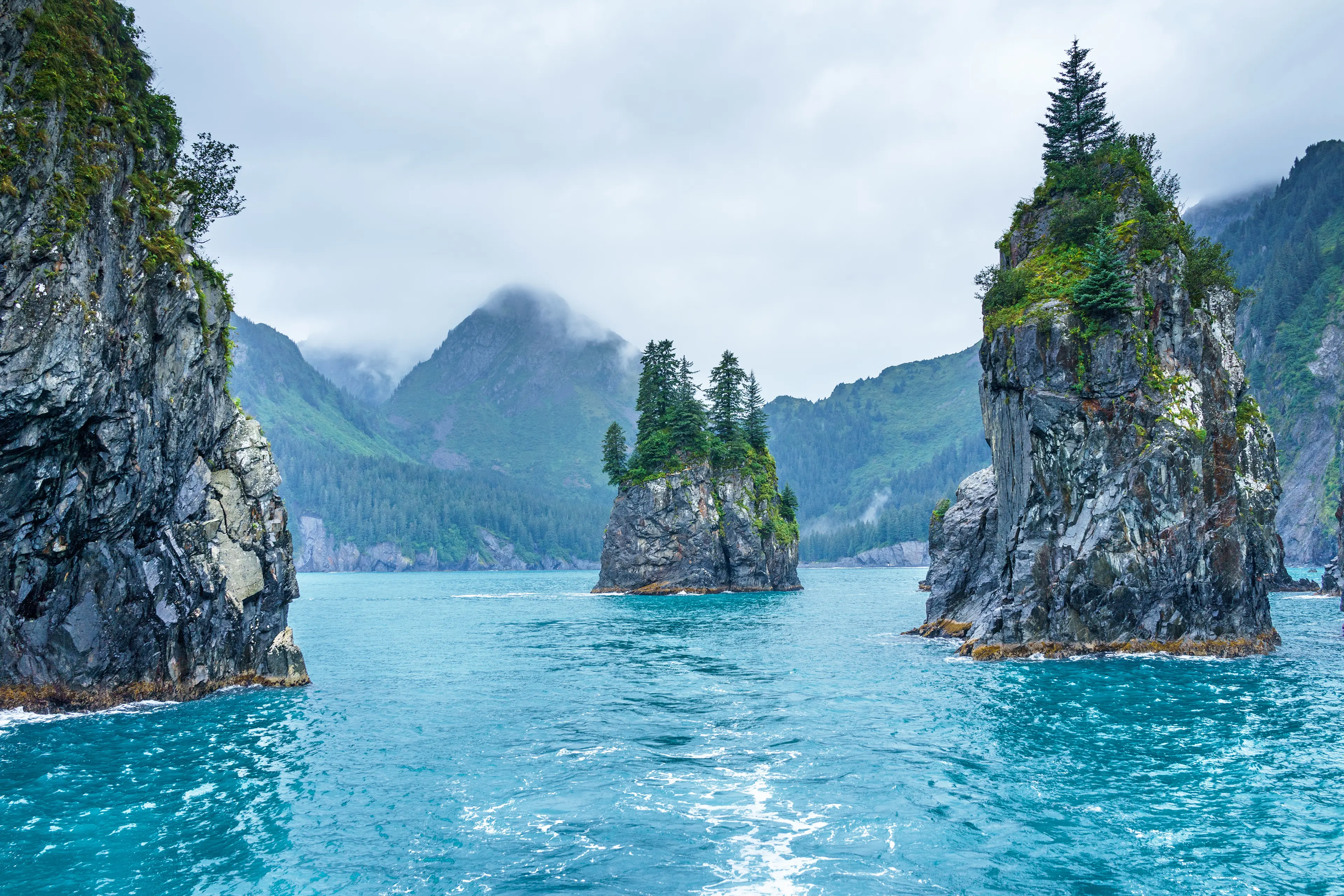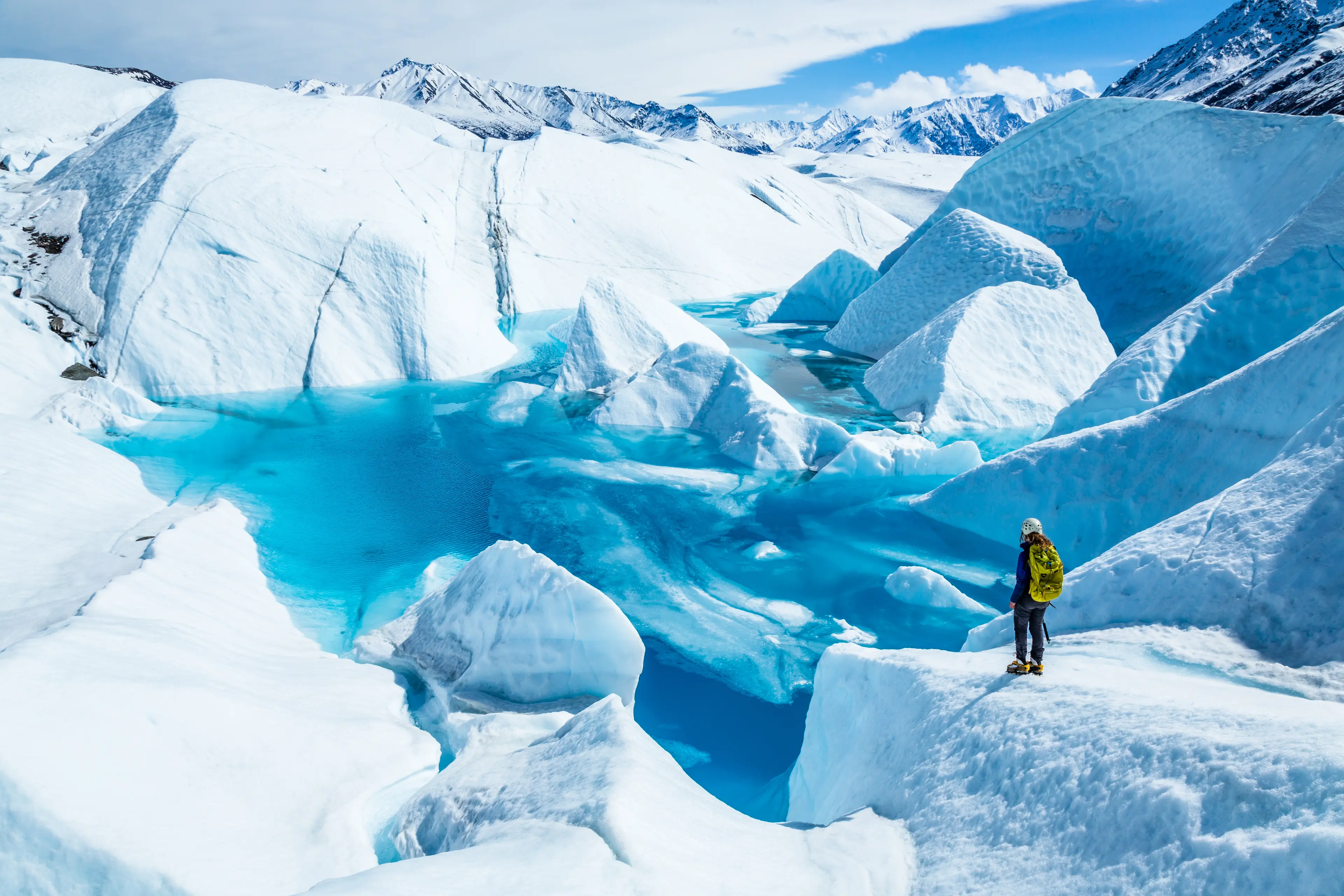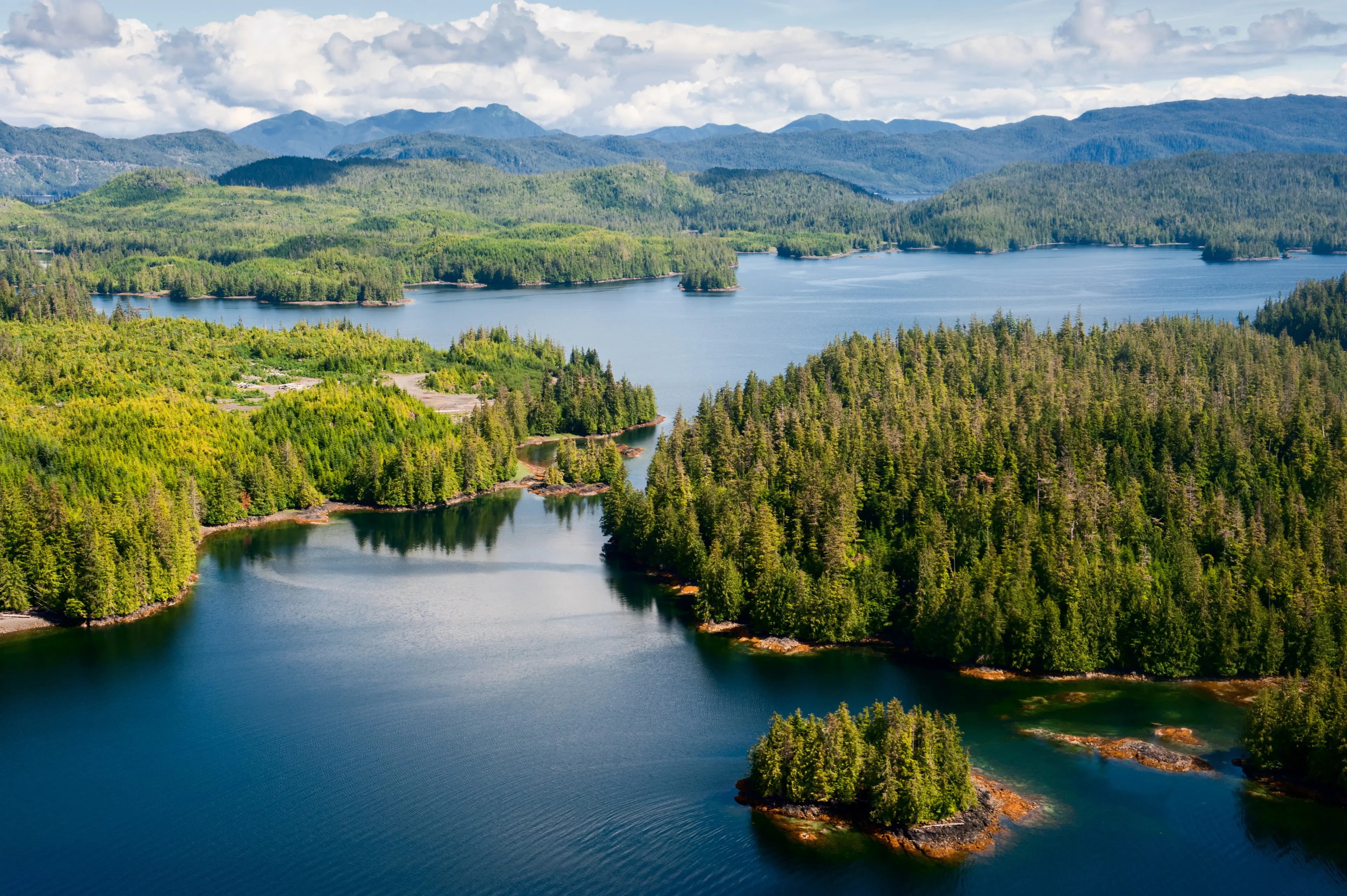1-Day Outdoor Adventure for Solo Locals in Alaska
Alaska
1 days
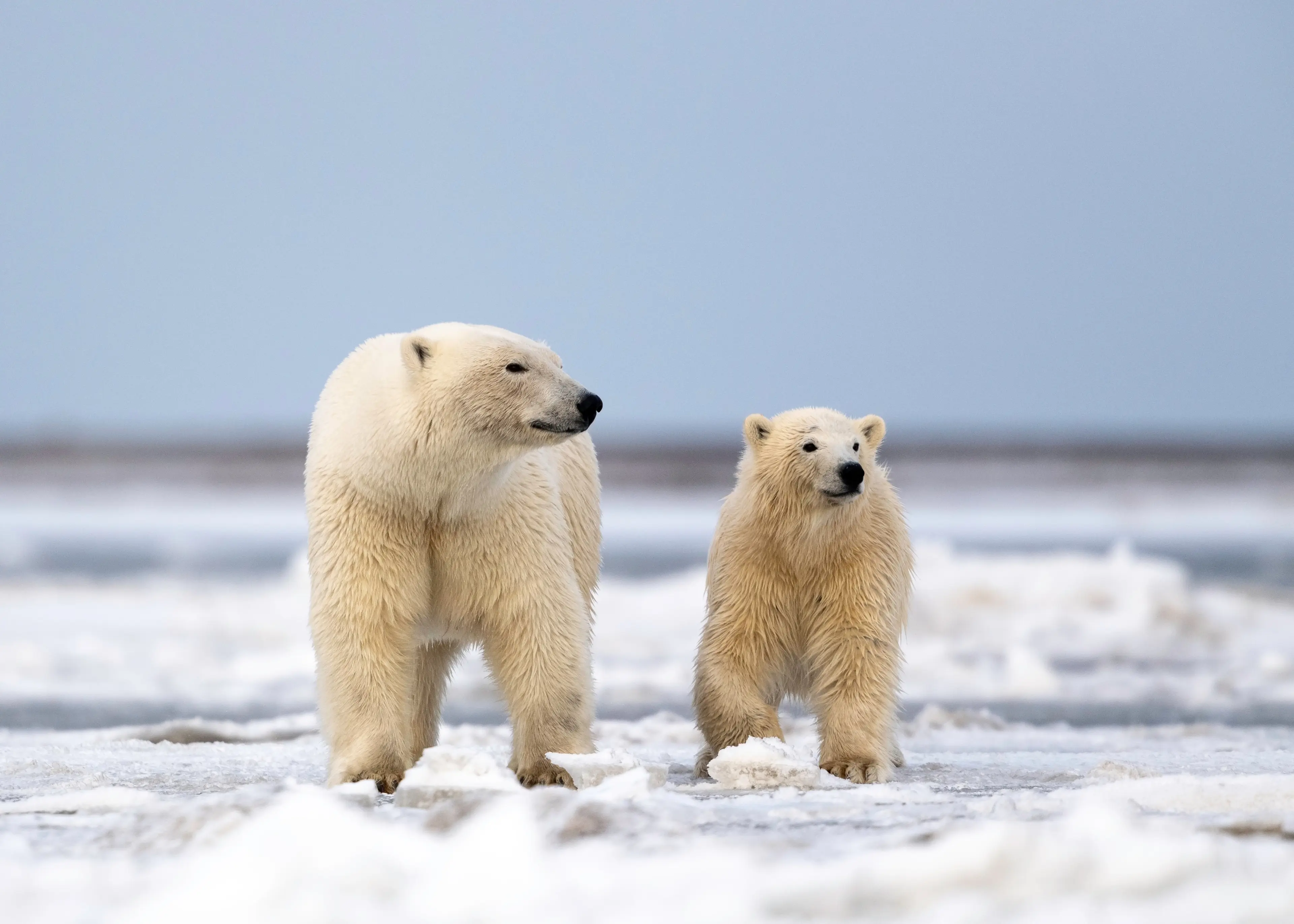
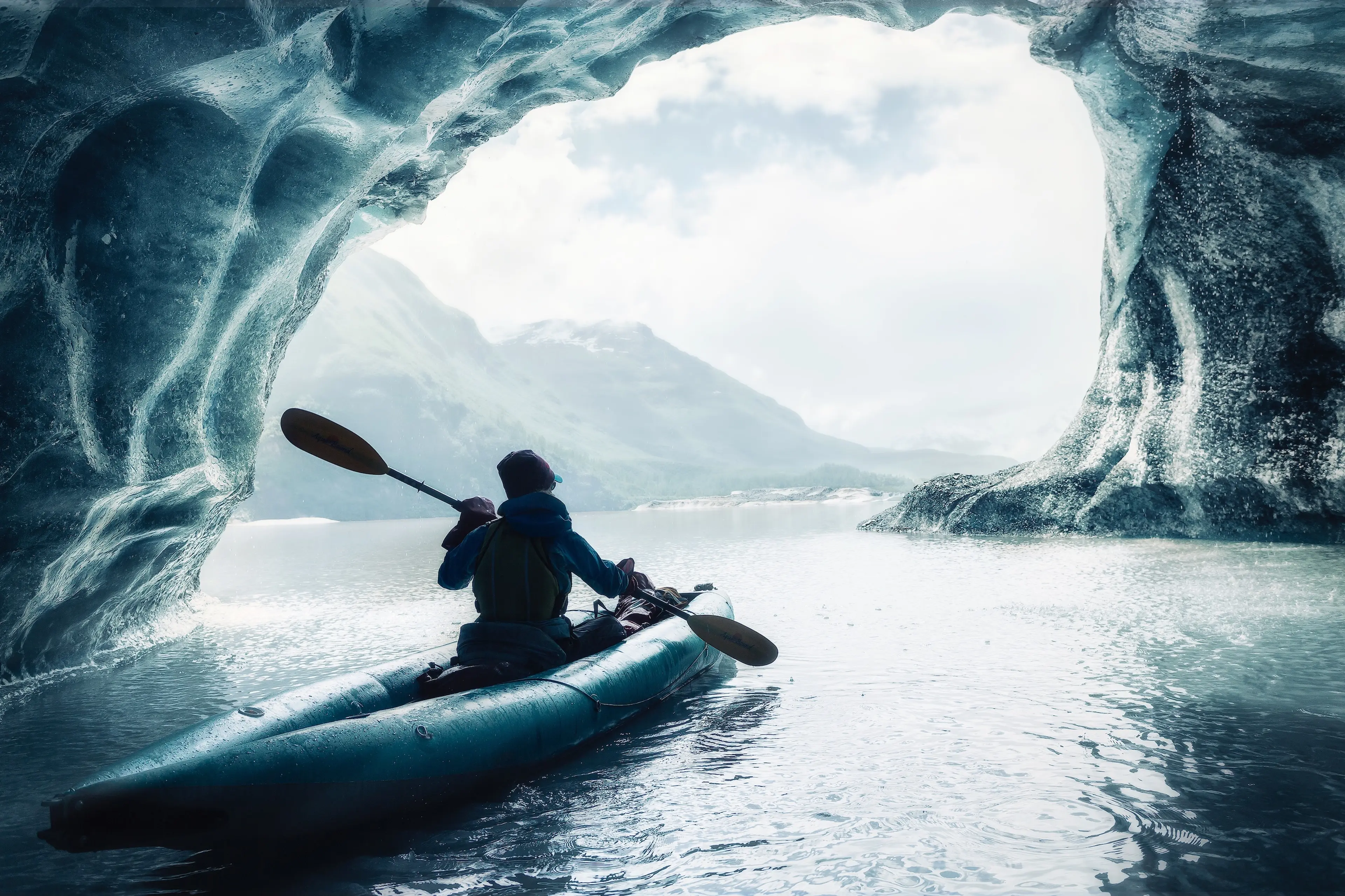
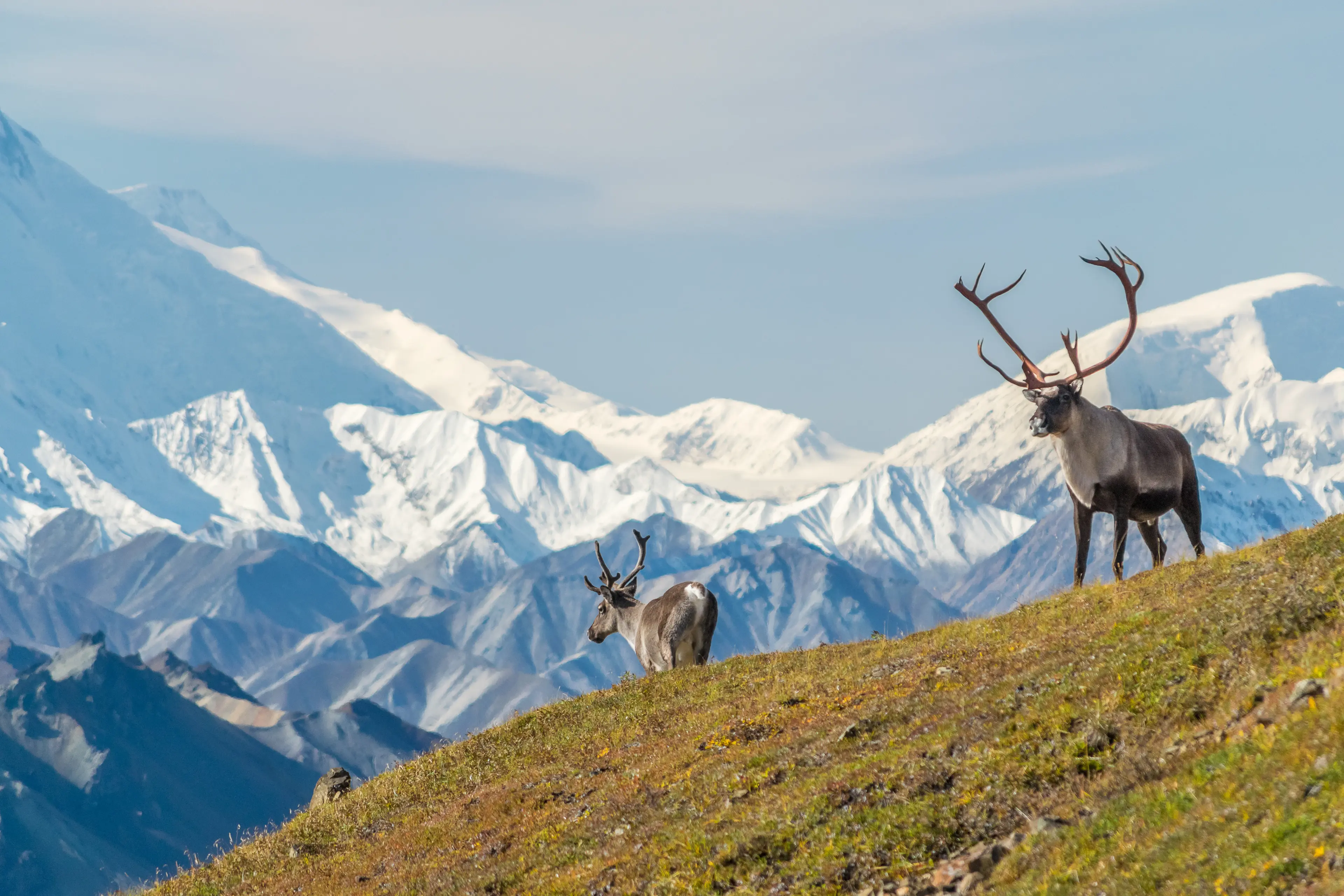
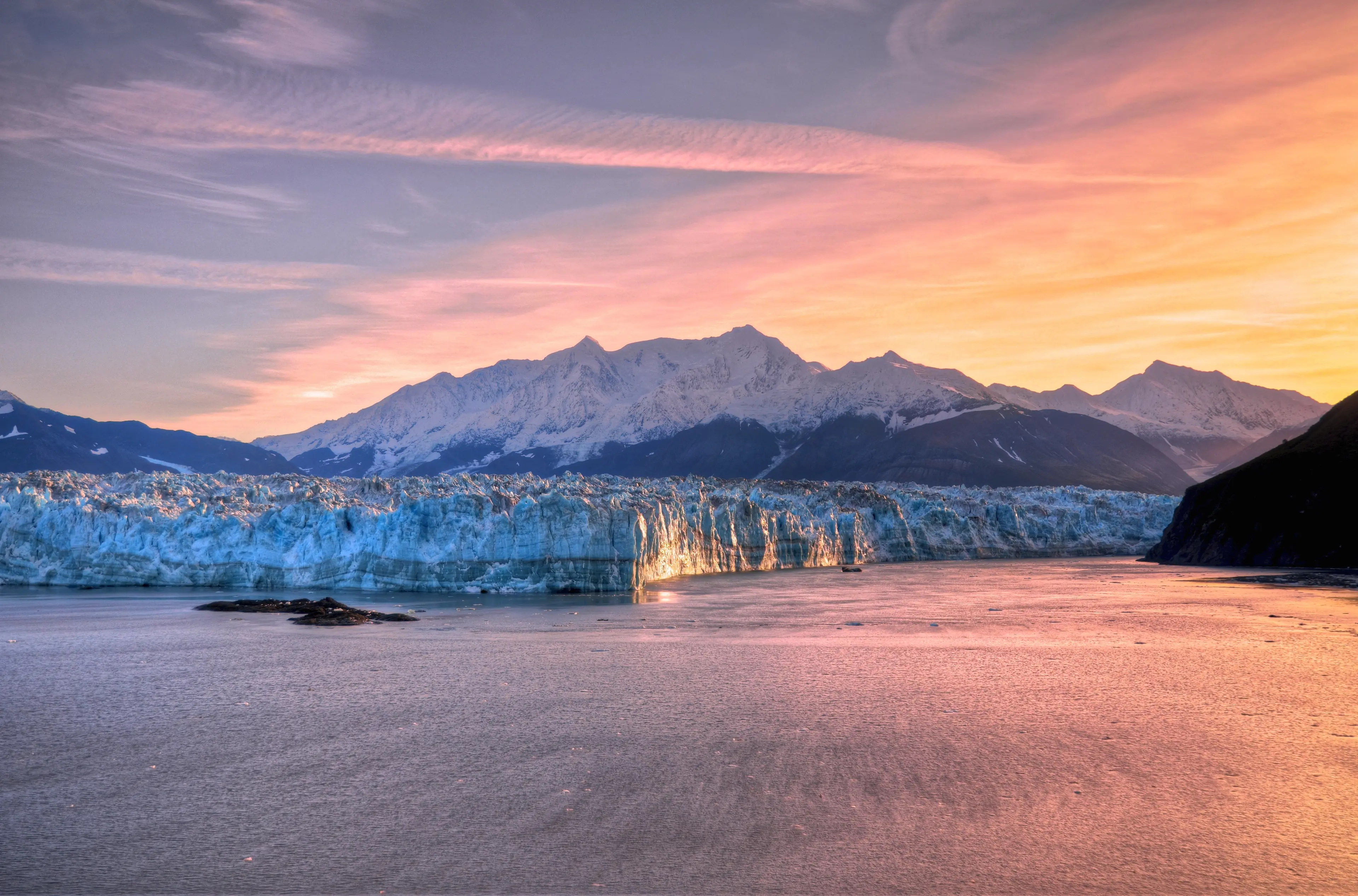
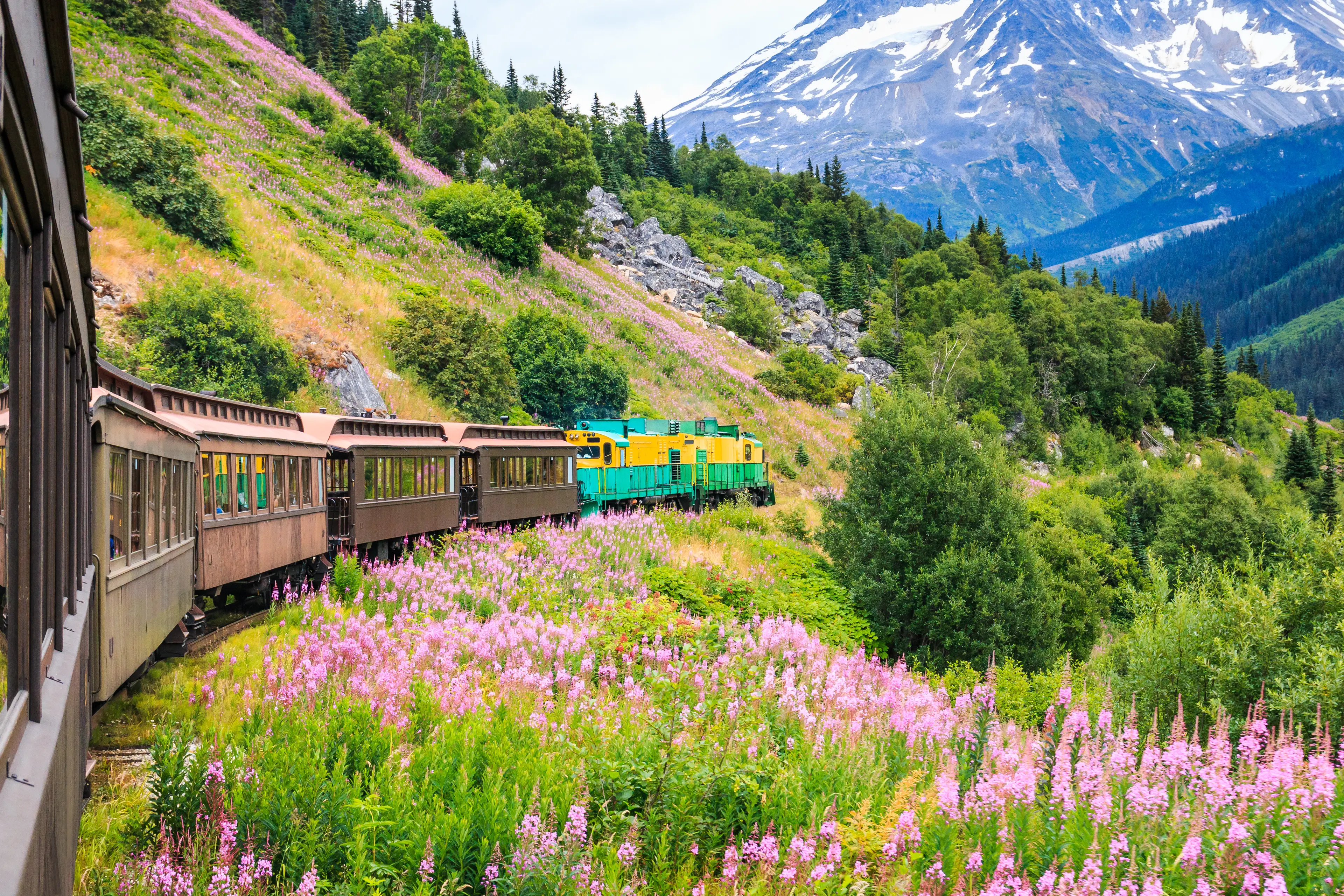
About Alaska
Experience the majestic beauty of Alaska, a paradise for nature lovers and adventure seekers. Witness the awe-inspiring Northern Lights, explore the vast Denali National Park, home to North America's highest peak, and cruise through the stunning fjords of the Kenai Peninsula. Discover the rich cultural heritage of the native tribes in Anchorage, or try your hand at dog sledding in Fairbanks. Alaska's diverse wildlife, including bears, eagles, and whales, offers unparalleled viewing opportunities. Enjoy world-class fishing, hiking, and skiing, or simply relax and soak in the breathtaking landscapes. From its glacier-carved mountains to its charming coastal towns, Alaska promises an unforgettable journey of discovery and adventure.
1-Day Itinerary
Attractions in Itinerary (4)
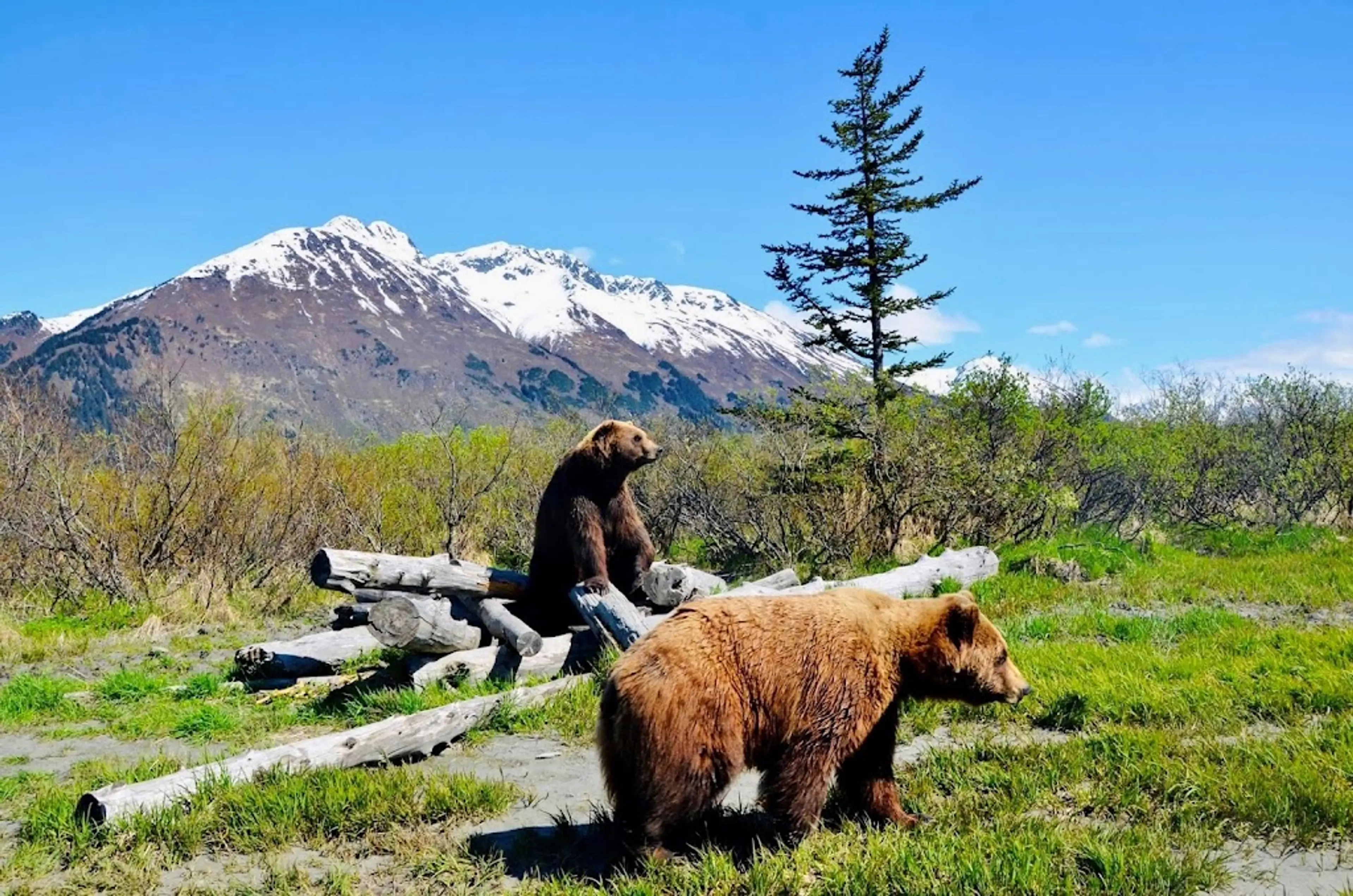
1Alaska Wildlife Conservation Center
A sanctuary dedicated to preserving Alaska's wildlife through conservation, research, education, and quality animal care.
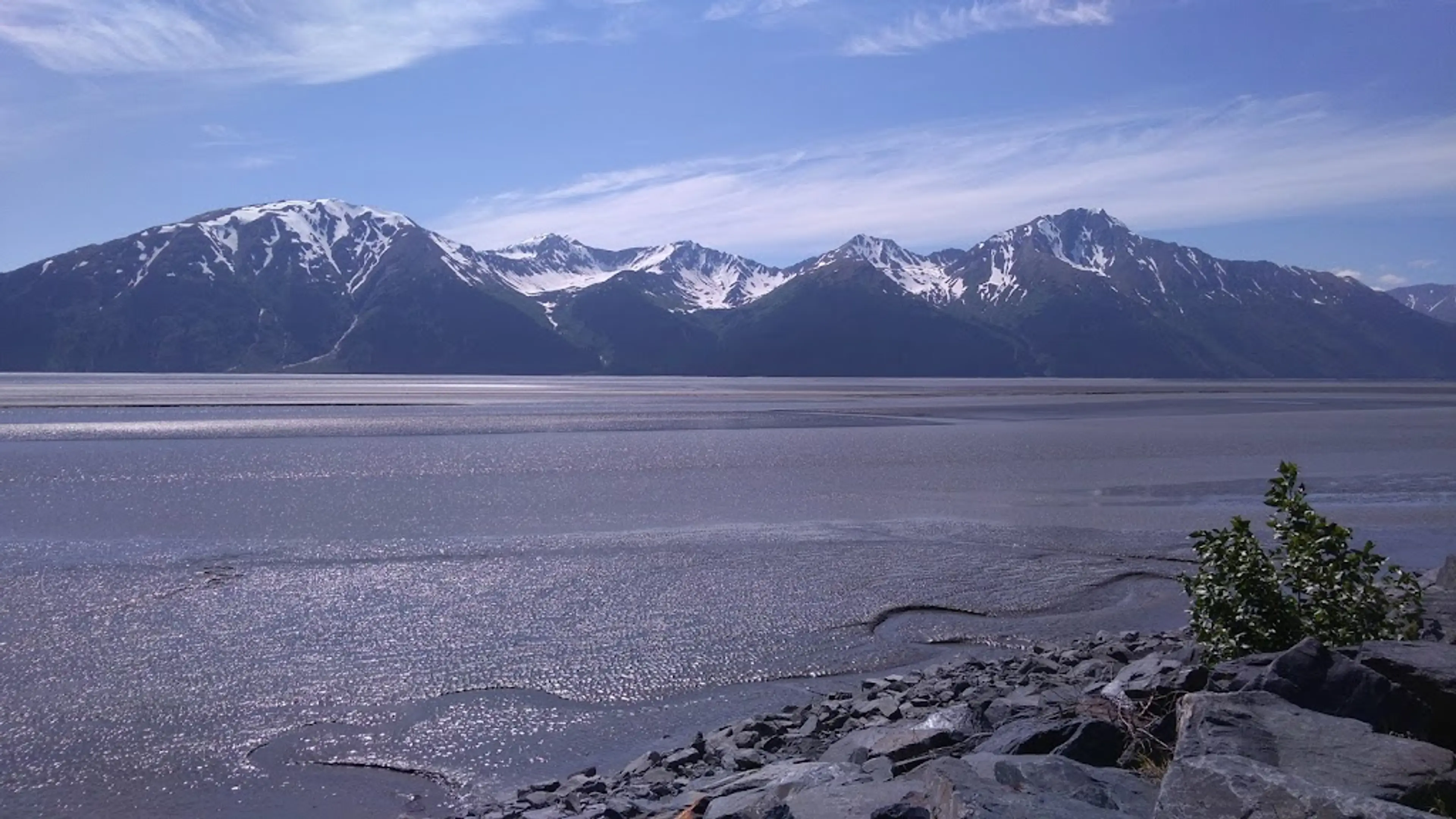
2Turnagain Arm
Turnagain Arm is a narrow branch of the Cook Inlet in the North Pacific Ocean, located in the south-central part of Alaska. It is one of the most picturesque spots in the state, offering breathtaking views and a wide variety of wildlife, including whales, seals, and a large number of bird species.
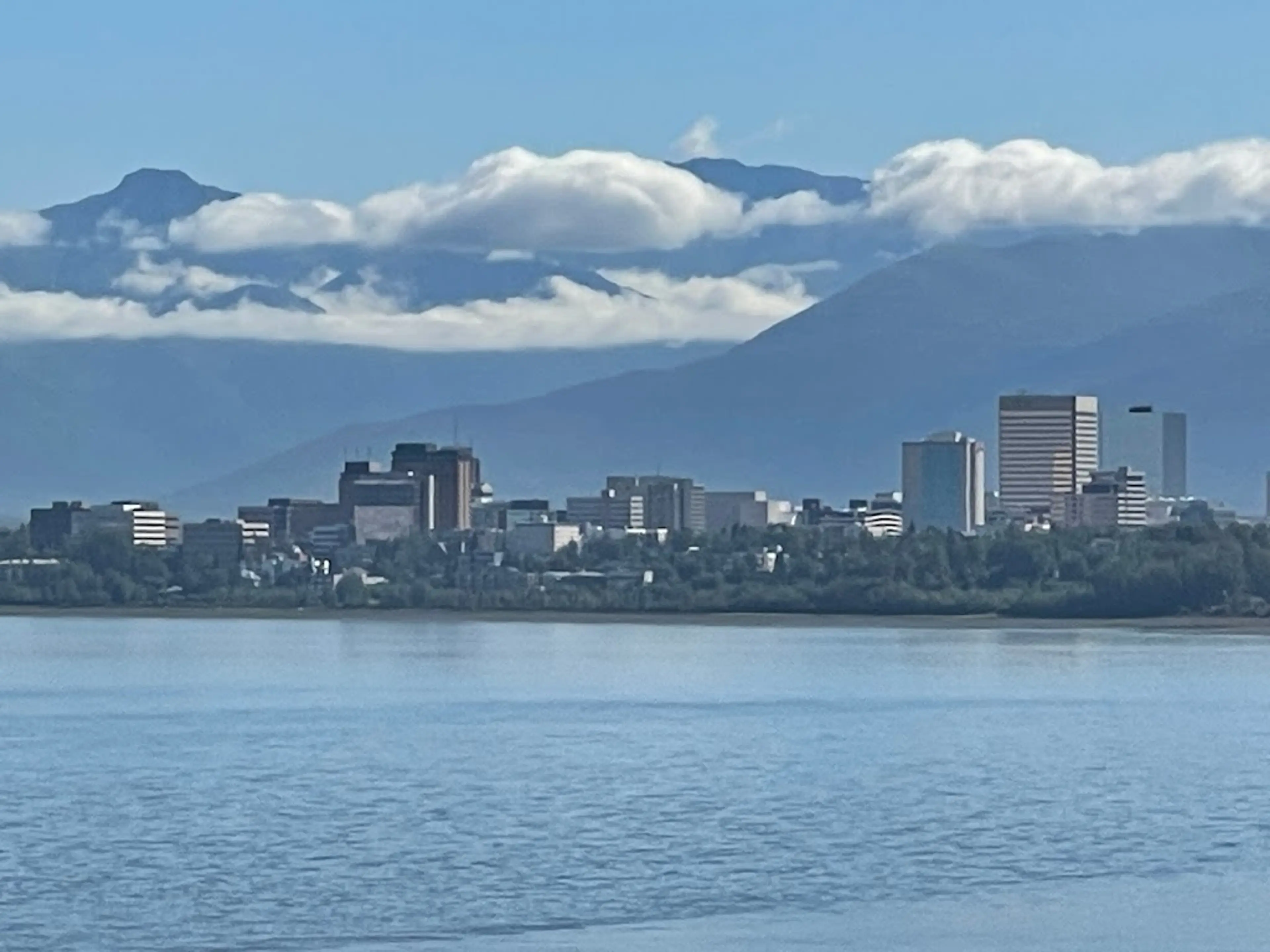
3Tony Knowles Coastal Trail
An 11-mile long trail along the coast offering stunning views, wildlife sightings, and a great place for biking, walking, and rollerblading.
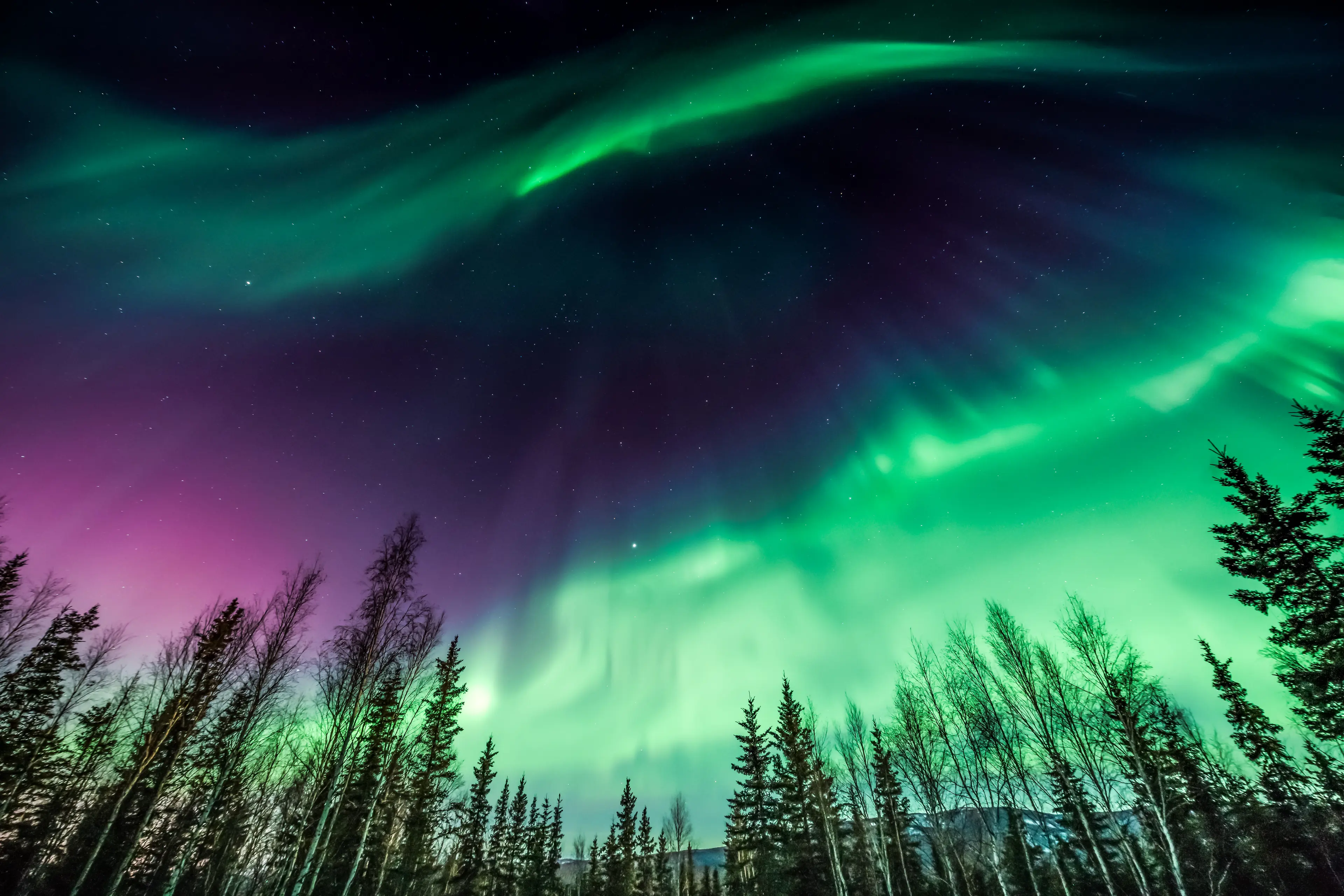
4Northern Lights
The Northern Lights, or Aurora Borealis, is a natural light display caused by charged particles colliding in the Earth's atmosphere. Best viewed in the winter months.
Local Food and Drinks (12)
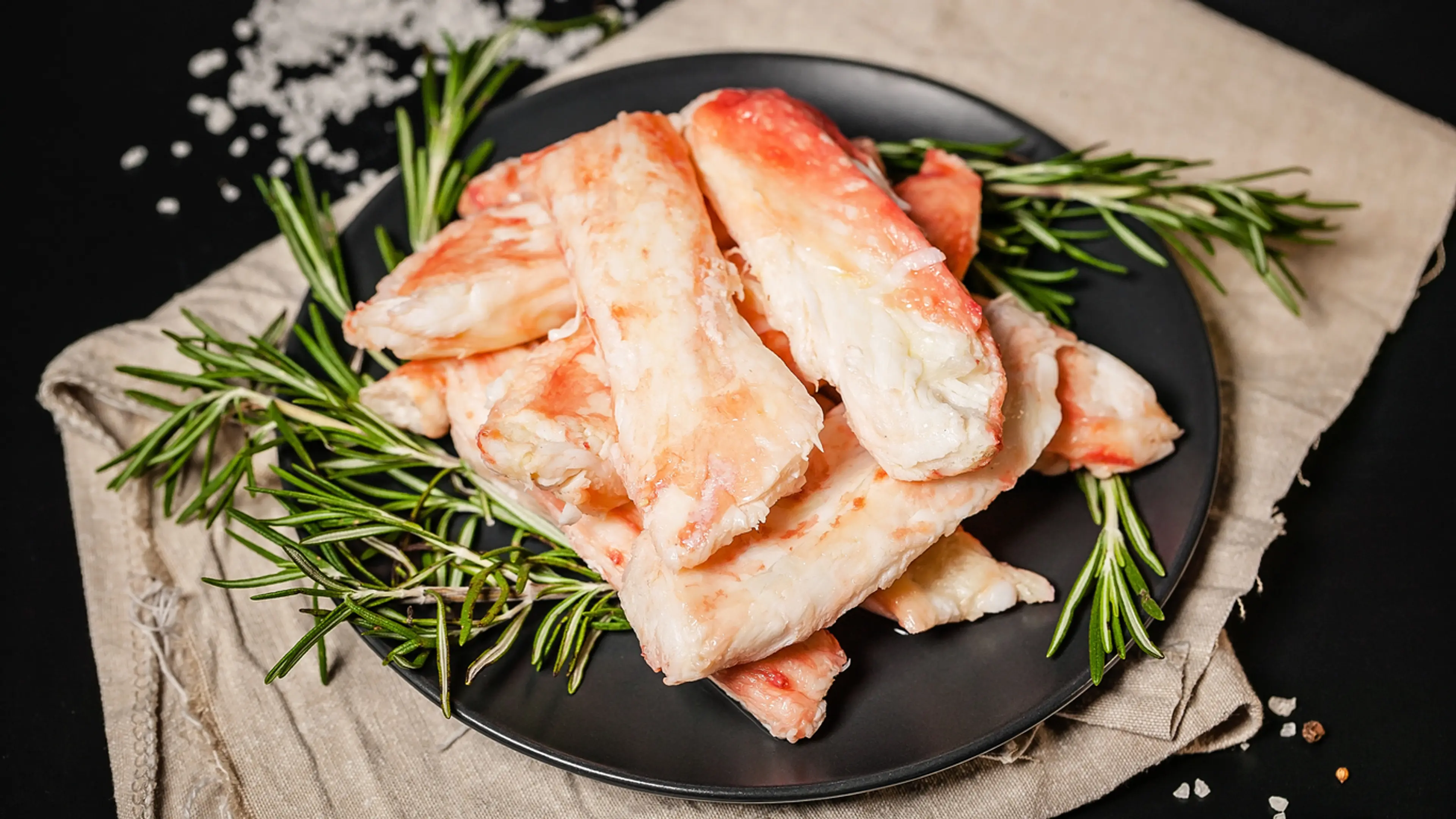
King Crab
King Crab is a popular seafood delicacy in Alaska, known for its sweet and tender meat. It's often served boiled, steamed, or grilled.

Wild Alaskan Salmon
Wild Alaskan Salmon is a must-try when in Alaska. It's often served grilled, smoked, or in sushi. The salmon in Alaska is known for its rich, full flavor and deep red color.

Reindeer Sausage
Reindeer Sausage is a unique Alaskan dish. It's made from reindeer meat, which is lean and flavorful, and is often served in a bun or with breakfast.
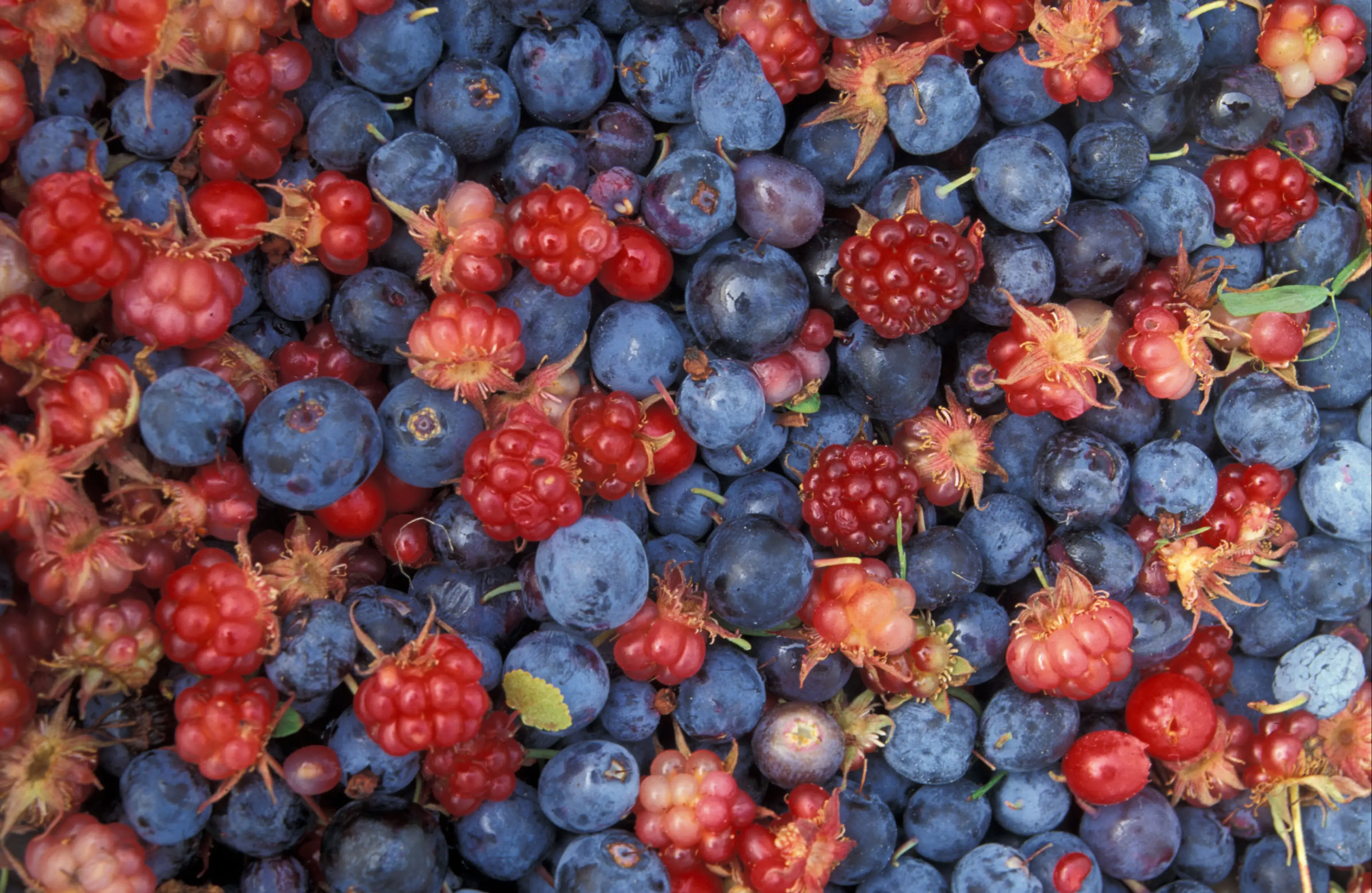
Akutaq
Akutaq, also known as Eskimo Ice Cream, is a traditional Alaskan dessert made from whipped fat, berries, and sometimes fish. Each family has its own recipe and it's a special treat in Alaska.

Alaskan Halibut
Alaskan Halibut is a white, flaky fish that's often grilled, baked, or fried. It's known for its mild flavor and is a staple in many Alaskan households.

Sourdough Pancakes
Sourdough Pancakes are a popular breakfast dish in Alaska. The sourdough starter gives the pancakes a unique tangy flavor.

Alaskan Amber Ale
Alaskan Amber Ale is a popular local beer. It's a rich, full-bodied beer that's brewed in the style of a traditional altbier.

Fireweed Honey
Fireweed Honey is a unique Alaskan product. It's made from the nectar of fireweed flowers and has a light, floral taste.

Blueberry Pie
Blueberry Pie is a popular dessert in Alaska, especially during the summer when blueberries are in season. The pie is often made with wild Alaskan blueberries, which are smaller and more flavorful than cultivated varieties.
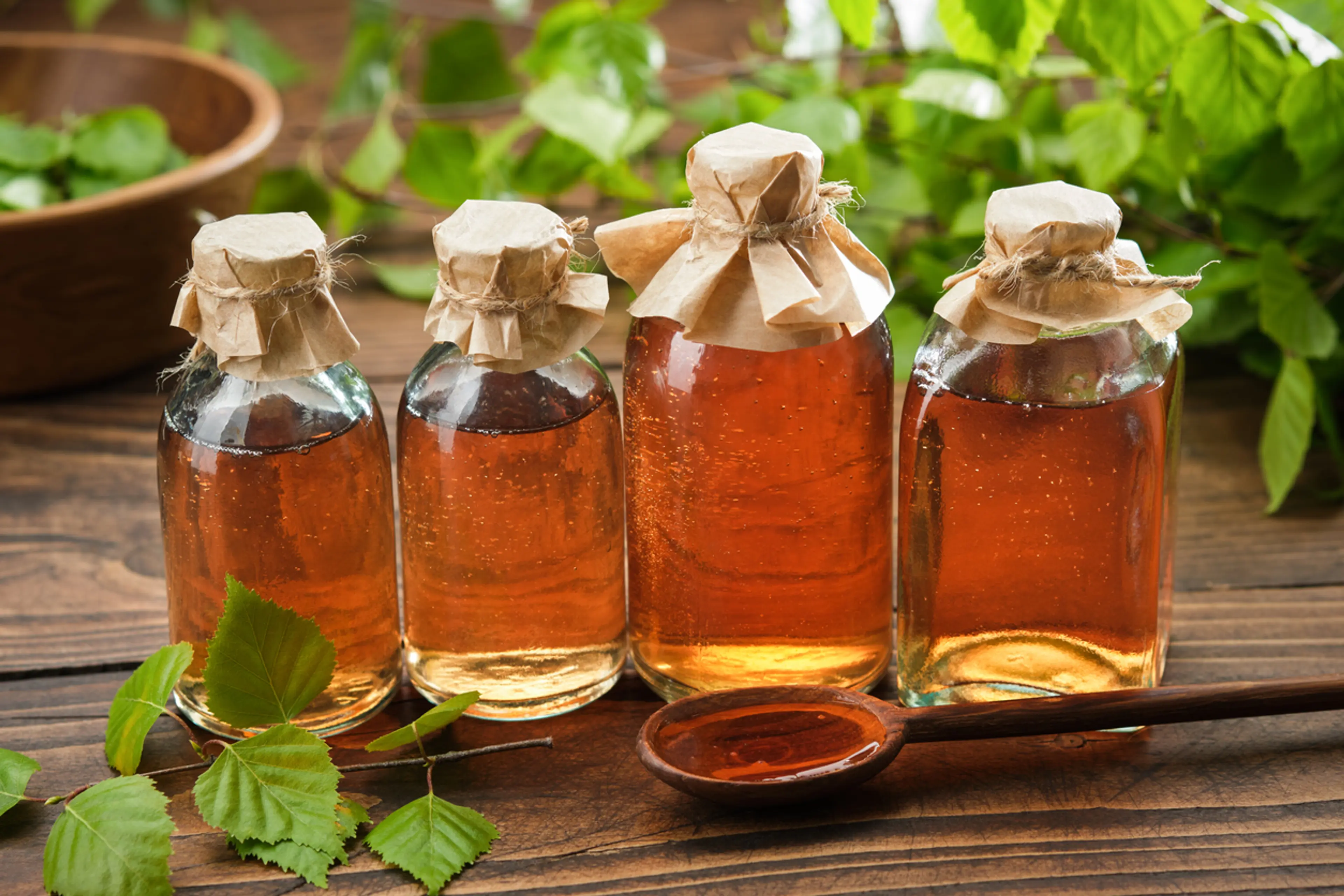
Birch Syrup
Birch Syrup is a unique Alaskan product. It's made from the sap of birch trees and has a complex, molasses-like flavor. It's often used in cooking and baking.
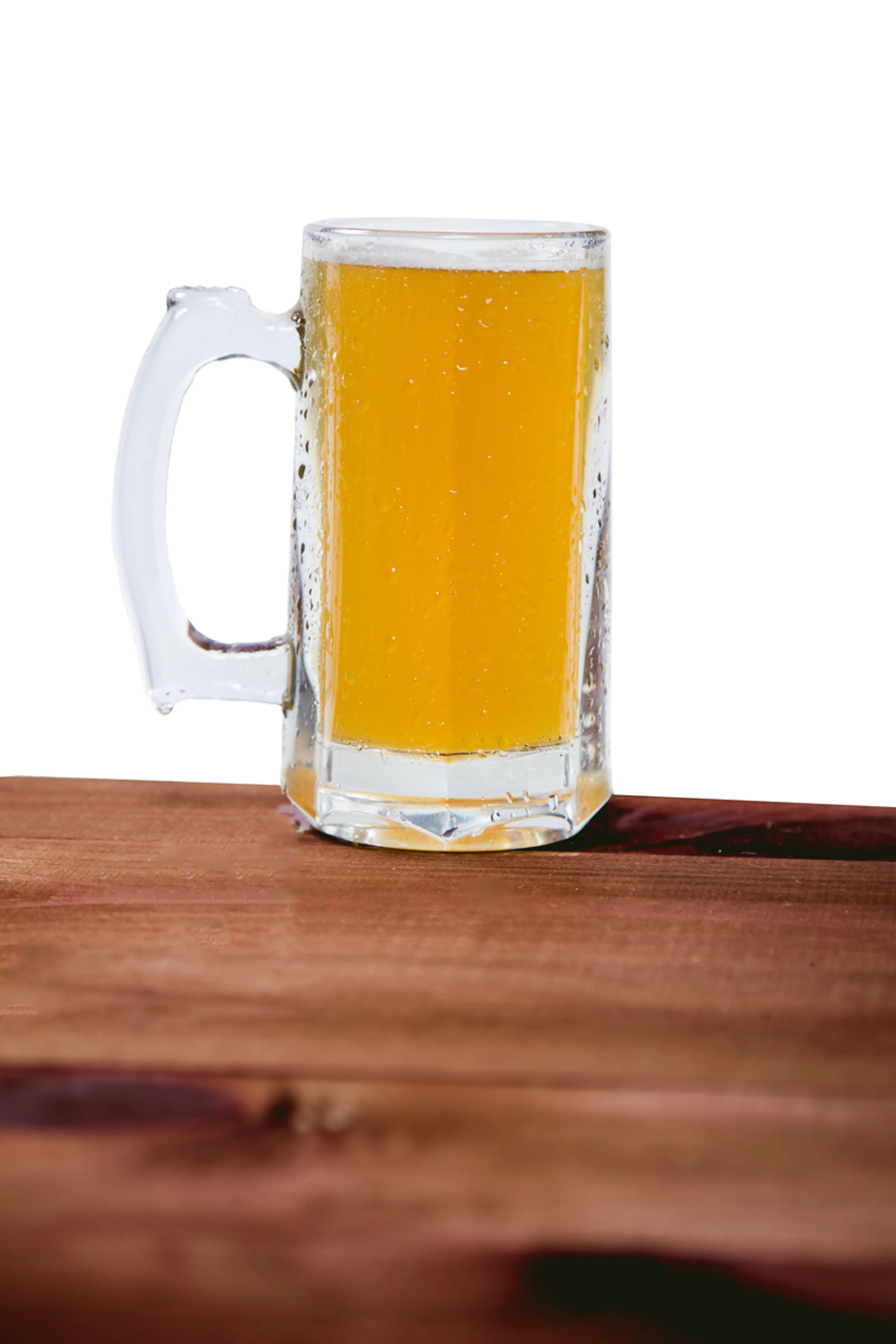
Alaskan Spruce Tip Ale
Alaskan Spruce Tip Ale is a unique local beer. It's brewed with the tips of spruce trees, which give the beer a unique, resinous flavor.

Smoked Salmon Chowder
Smoked Salmon Chowder is a hearty soup that's popular in Alaska. It's made with smoked salmon, potatoes, and cream, and is a comforting dish on a cold Alaskan day.
Best time to visit
The best time to visit Alaska as a tourist is during the summer months, from mid-June to mid-August. During this period, the weather is generally mild and most of the wildlife is active. The days are also the longest, providing ample daylight for various activities. However, if you are interested in seeing the Northern Lights, late September to early April would be the ideal time to visit.
How to get around
Car Rental
Renting a car is a popular option for getting around in Alaska, especially for those who want the freedom to explore at their own pace. Most major rental companies have offices in the larger cities and airports. Keep in mind that some remote areas may not have paved roads, and rental companies may have restrictions on driving on gravel roads.
Train
The Alaska Railroad runs from Seward in the south to Fairbanks in the north, passing through Anchorage. It offers a comfortable and scenic way to travel between these cities, with options for day trips and overnight journeys. The train also provides access to Denali National Park.
Bus
Bus services are available in larger cities like Anchorage, Fairbanks, and Juneau. There are also shuttle services to popular tourist destinations like Denali National Park and the Kenai Peninsula. Some remote areas can only be reached by bus.
Ferry
The Alaska Marine Highway System operates ferries along the coast, from Bellingham, Washington up to Dutch Harbor in the Aleutian Islands. This is a great way to see the coastal scenery and visit towns off the beaten path. Cabins are available for overnight journeys.
Plane
Alaska has a vast network of small planes and air taxis that provide access to remote areas, including many national parks. These flights can be an adventure in themselves, offering stunning aerial views of the Alaskan wilderness.
Ridesharing
Ridesharing services like Uber and Lyft are available in larger cities like Anchorage and Fairbanks. This can be a convenient option for short trips within the city. However, availability may be limited in more remote areas.
Bicycle
In the summer months, cycling can be a great way to get around in Alaska. Many cities have bike rental shops, and there are numerous bike trails, including the famous Tony Knowles Coastal Trail in Anchorage.
Cruise Ship
Cruise ships are a popular way to see Alaska's coastal scenery and wildlife, with routes that typically run from Vancouver or Seattle to various ports in Alaska. Some cruises also include shore excursions to places like Glacier Bay National Park or the Inside Passage.
Dog Sled
In the winter months, dog sledding is not only a mode of transportation but also a popular tourist activity. Several companies offer dog sled tours, where you can experience this traditional Alaskan way of getting around.
Foot
Many of Alaska's cities and towns are walkable, and hiking is a popular activity throughout the state. There are countless trails, ranging from easy walks to challenging mountain hikes.
Important information
Currency$ USD
Time zoneUTC-5
Driving sideRight
Emergency phone911
Drinking waterYes
Power sockets
Voltage120 V
Things to know about Alaska as a first time visitor
1
Alaska is the largest state in the U.S., so plan your trip accordingly as distances between destinations can be vast.
2
The weather can be unpredictable, so pack layers to accommodate sudden temperature changes.
3
The best time to visit Alaska is during the summer months (June to August) when the weather is warmest, averaging 60-80°F (15-27°C).
4
During the winter months (December to February), temperatures can drop as low as -30°F (-34°C), so pack appropriate winter gear if you plan to visit during this time.
5
Alaska is known for its wildlife, so always maintain a safe distance from animals and never feed them.
6
If you plan to go hiking or camping, bear safety is crucial. Carry bear spray and know how to use it.
7
Alaska has a high cost of living compared to other U.S. states, so budget accordingly.
8
Many parts of Alaska are only accessible by plane or boat, so plan your transportation in advance.
9
Alaska operates on Alaska Standard Time, which is one hour behind Pacific Standard Time.
10
Alaska has long daylight hours in the summer, sometimes up to 24 hours a day, known as the 'Midnight Sun'.
11
Conversely, winter days can have as little as 3-4 hours of daylight, known as 'Polar Night'.
12
If you're planning to fish or hunt, be sure to obtain the necessary permits and licenses.
13
Alaska has many remote areas with limited cell service, so consider a satellite phone for emergencies.
14
Always inform someone of your travel plans, especially if you're heading into remote areas.
15
Mosquitoes can be abundant in the summer, so bring insect repellent.
16
Alaska's tap water is some of the cleanest in the world, so feel free to drink it.
17
Tipping is customary in Alaska, with 15-20% being the standard for good service.
18
Alaska has a casual dress code, even in upscale restaurants and hotels.
19
Alaska has strict laws regarding the collection of artifacts and natural objects, so leave what you find.
20
If you plan to drive, be aware that many roads are gravel and can be rough. Consider renting a vehicle with 4-wheel drive.
Packing List
Clothing
Thermal underwear
Insulated pants
Long-sleeve shirts
Sweater or fleece jacket
Waterproof jacket
Insulated boots
Thick socks
Gloves
Beanie
Scarf
Sunglasses
Toiletries
Travel-size shampoo
Travel-size conditioner
Travel-size body wash
Toothbrush
Travel-size toothpaste
Deodorant
Razor
Travel-size shaving cream
Lip balm
Sunscreen
Hand sanitizer
Travel documents and essentials
Passport/ID
Boarding passes
Hotel reservation confirmation
Travel insurance documents
Emergency contacts and addresses
Credit/debit cards
Cash
Electronics and gadgets
Smartphone
Charger
Power bank
Camera
Memory card
Headphones
Miscellaneous items
Snacks
Water bottle
Travel pillow
Earplugs
Eye mask
First aid kit
Medications
Travel guidebook
Map
Binoculars
Weather Conditions
Visiting Alaska can be a breathtaking experience, but the weather can be quite unpredictable, so it's essential to be prepared. In general, the best time to visit Alaska is during the summer months, from June to August, when the weather is typically mild, with temperatures ranging from 60°F to 80°F (15°C to 27°C). However, even in summer, it's wise to pack layers as temperatures can drop significantly in the evenings. If you're planning to visit in the winter, be prepared for very cold temperatures. From November to March, temperatures can range from 0°F to -30°F (-18°C to -34°C), and even colder in the northern regions. It's essential to pack warm clothing, including thermal layers, a heavy coat, gloves, a hat, and boots. Regardless of when you visit, it's always a good idea to pack rain gear. Alaska is known for its sudden rain showers, especially in coastal areas. A waterproof jacket and shoes can make your trip more comfortable. If you're planning to see the Northern Lights, the best time to visit is during the colder months, from late September to early April. However, keep in mind that this is a natural phenomenon and sightings can never be guaranteed. Remember, Alaska's weather can change quickly, so always check the local forecast before heading out for the day. And don't let the weather deter you - Alaska's natural beauty is worth experiencing in any conditions!
| Month | Hi / Lo (°C) | Weather Overview |
|---|---|---|
January | -10° / -28° | January is the coldest month in Alaska, with temperatures often dropping below -28°C. It's a great time for winter activities, but make sure to dress warmly. |
February | -8° / -25° | February is still very cold, but slightly warmer than January. It's a good time for snowmobiling and ice fishing. |
March | 0° / -18° | March sees a slight increase in temperature, with the high reaching up to 0°C. The snow starts to melt, making it a good time for skiing. |
April | 8° / -8° | April is the start of spring in Alaska, with temperatures ranging from -8°C to 8°C. The days get longer, and it's a good time to see wildlife. |
May | 15° / 0° | May is a pleasant month, with temperatures reaching up to 15°C. It's a great time for hiking and bird watching. |
June | 20° / 7° | June is the start of summer in Alaska, with the longest days of the year. It's a perfect time for fishing and camping. |
July | 22° / 10° | July is the warmest month in Alaska, with temperatures reaching up to 22°C. It's an ideal time for outdoor activities and sightseeing. |
August | 20° / 8° | August is still warm, but temperatures start to drop towards the end of the month. It's a good time for berry picking and fishing. |
September | 15° / 0° | September marks the start of autumn in Alaska, with temperatures dropping to 0°C. The fall colors make it a beautiful time for photography. |
October | 8° / -8° | October is a chilly month, with temperatures dropping below 0°C. It's a good time to see the Northern Lights. |
November | -5° / -18° | November is the start of winter in Alaska, with temperatures often dropping below -18°C. It's a good time for winter activities, but make sure to dress warmly. |
December | -8° / -25° | December is a cold month, with temperatures often dropping below -25°C. It's a perfect time to enjoy the winter wonderland that Alaska becomes. |
Did you know?
Places near by Alaska

Whitehorse
Capital of Yukon with rich history and outdoor activities
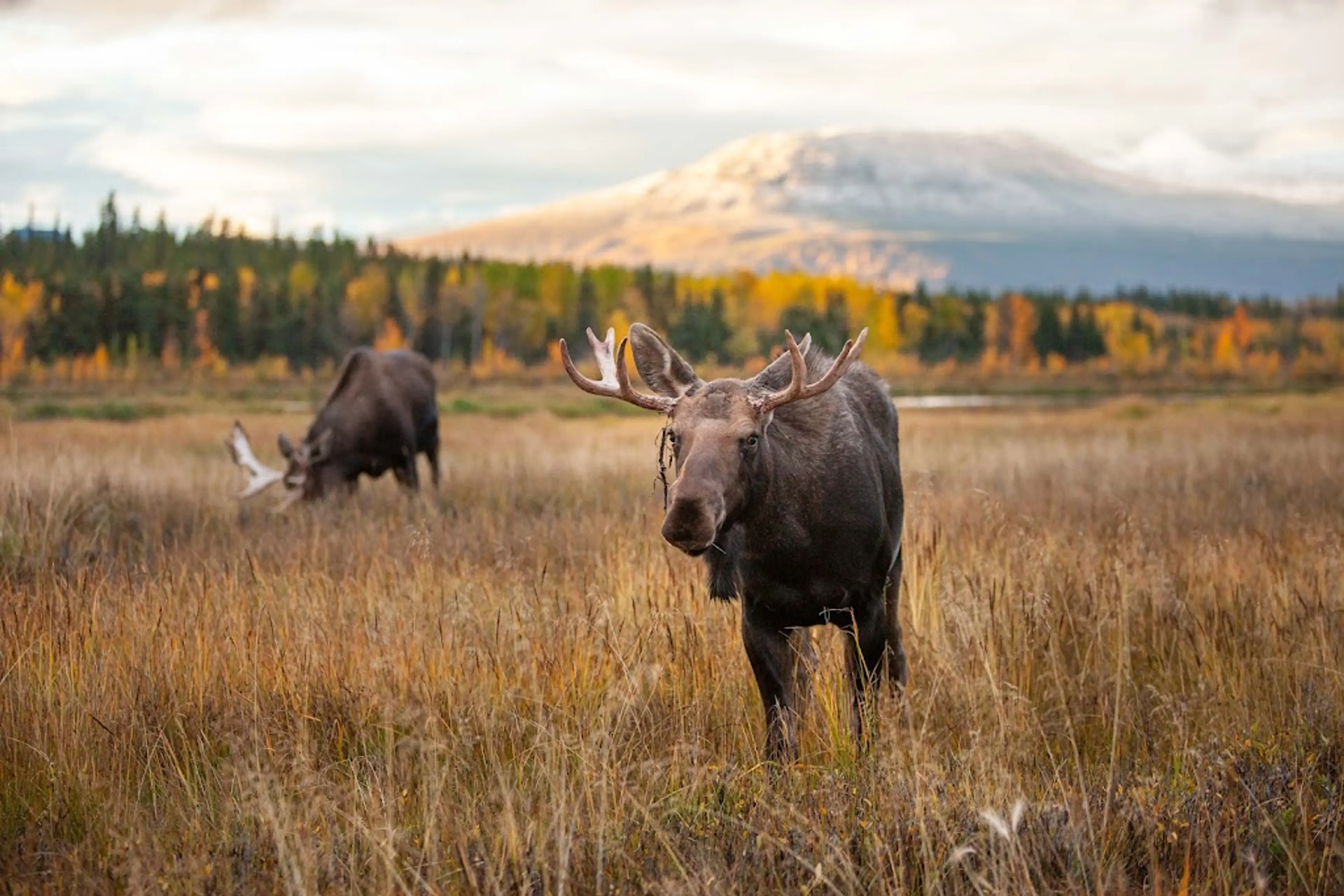
Yukon Wildlife Preserve
A large wildlife preserve featuring 13 species of northern Canadian mammals in natural habitats
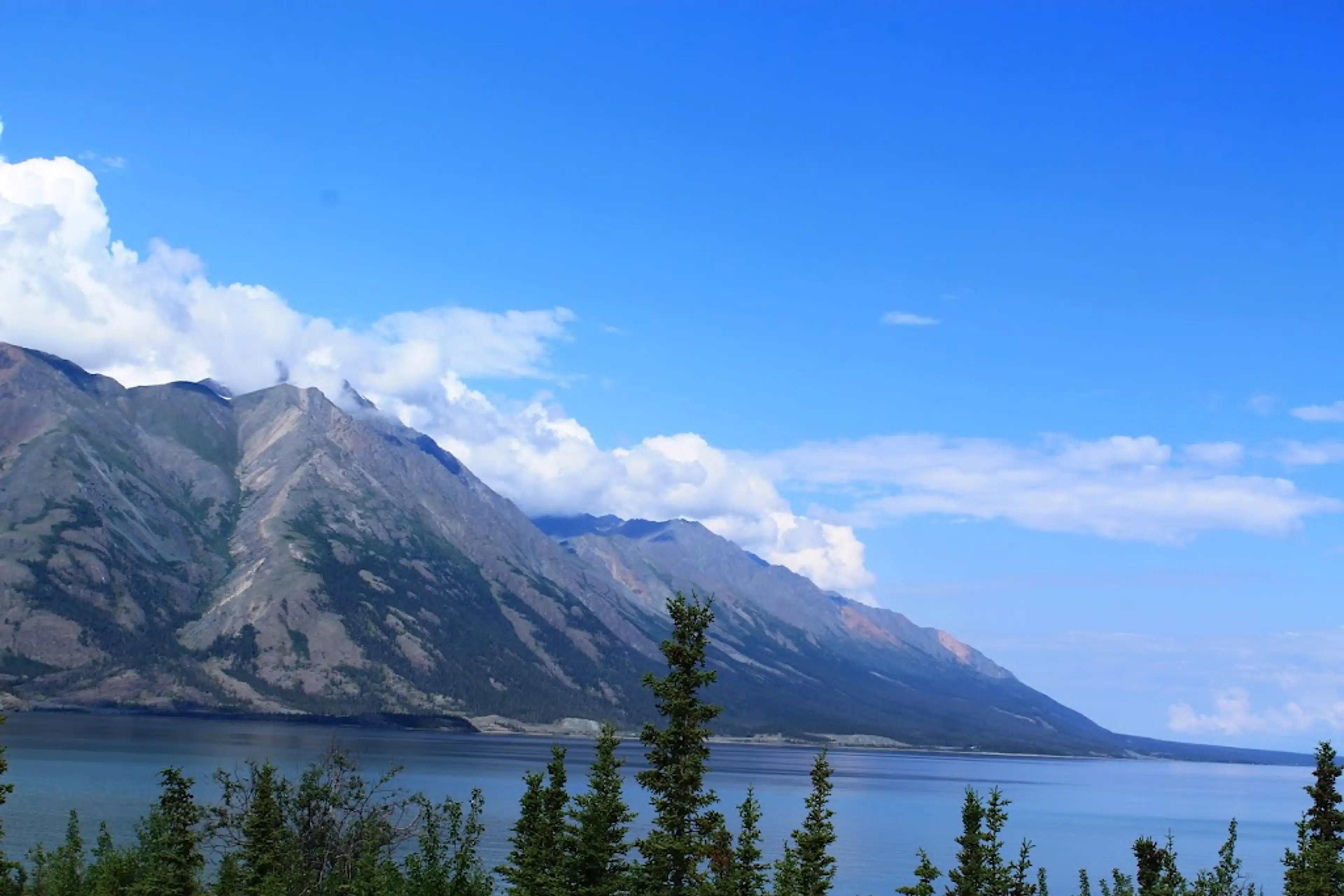
Kluane National Park and Reserve
A vast wilderness of ice fields, forests, and towering peaks, including Mount Logan, Canada's highest peak
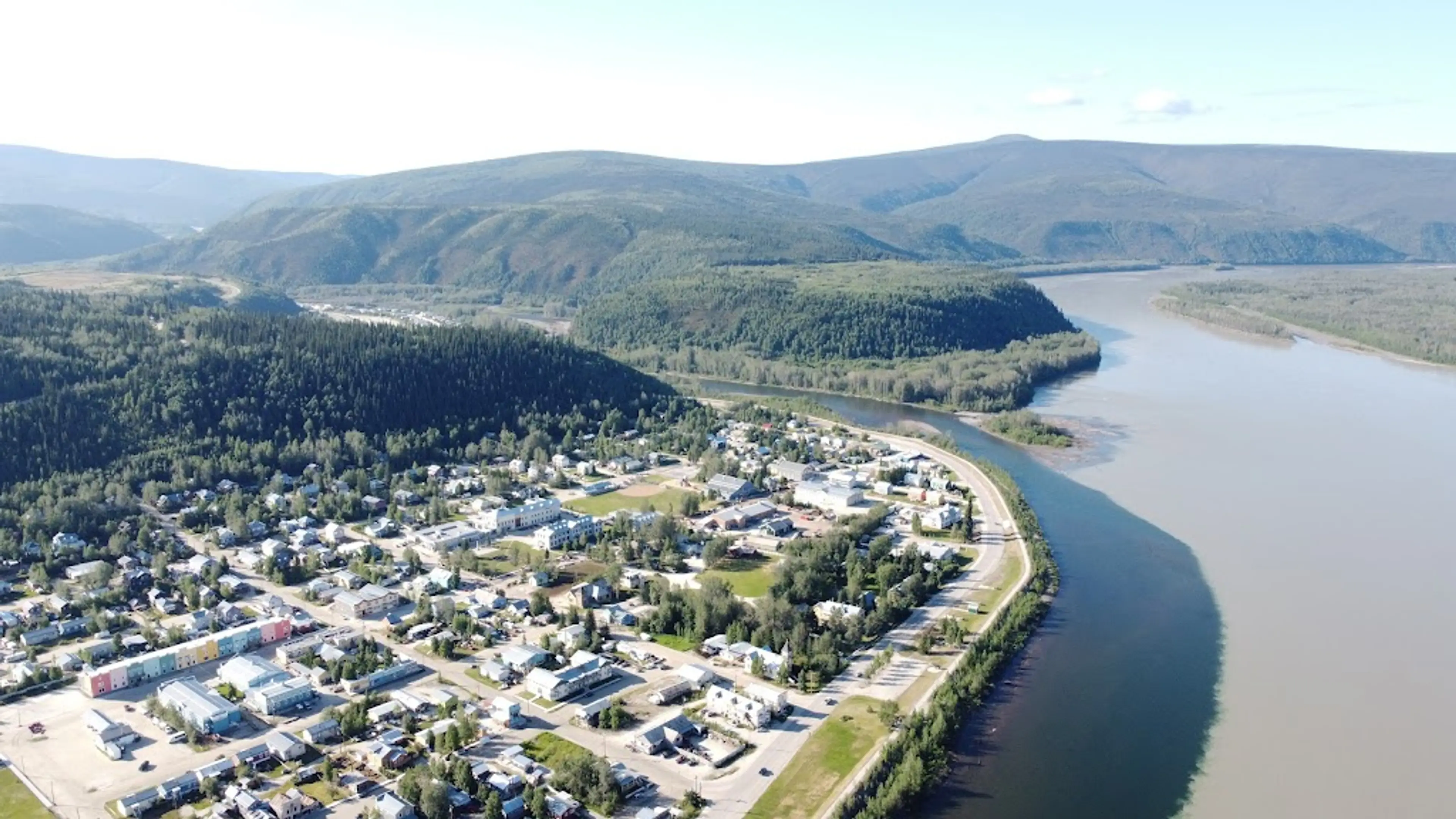
Dawson City
Historic town known for the Klondike Gold Rush

Juneau
Capital of Alaska known for its stunning wilderness areas
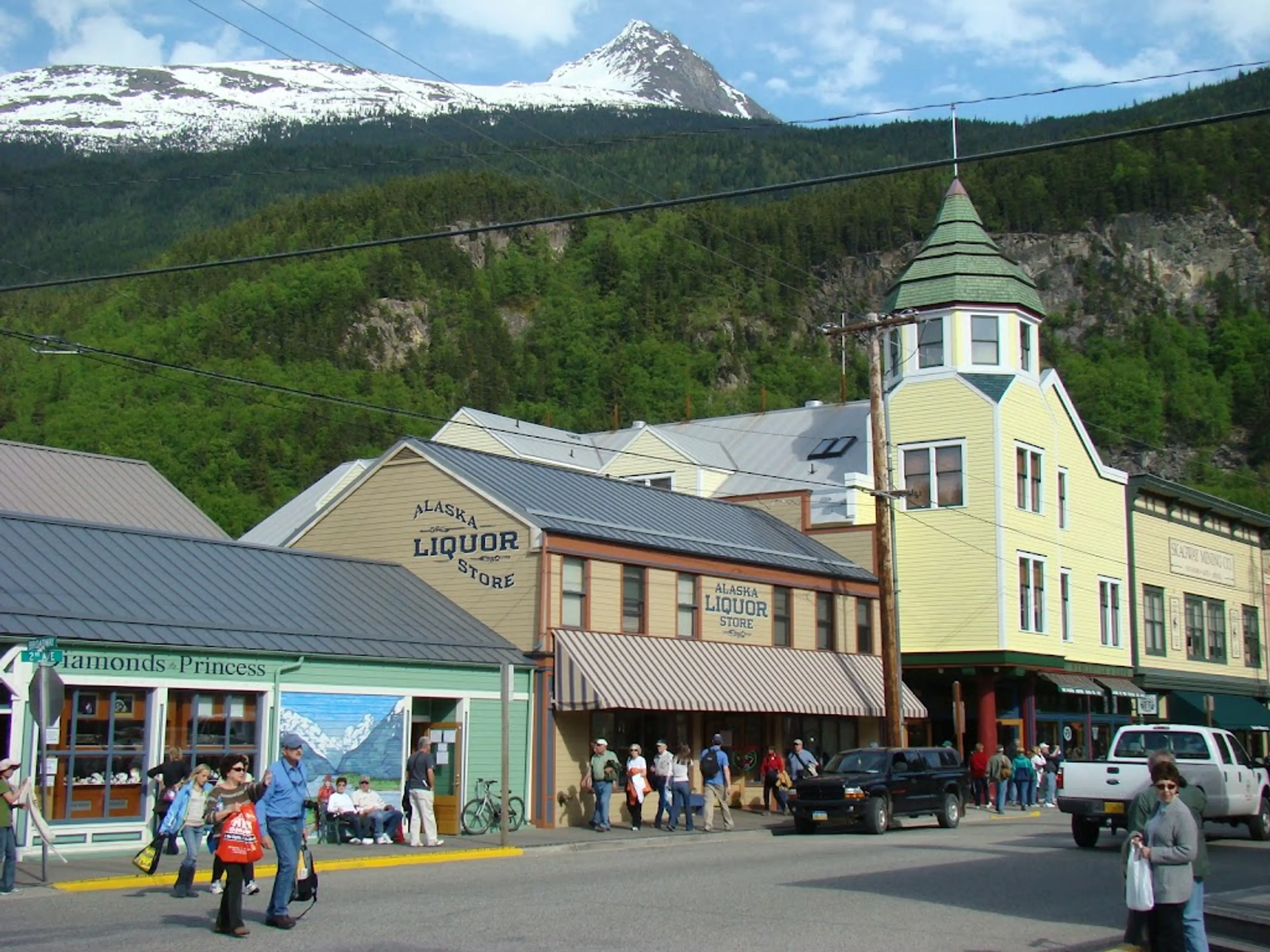
Skagway
A popular cruise-ship port where the gold-rush era is preserved in the town’s roads and sidewalks
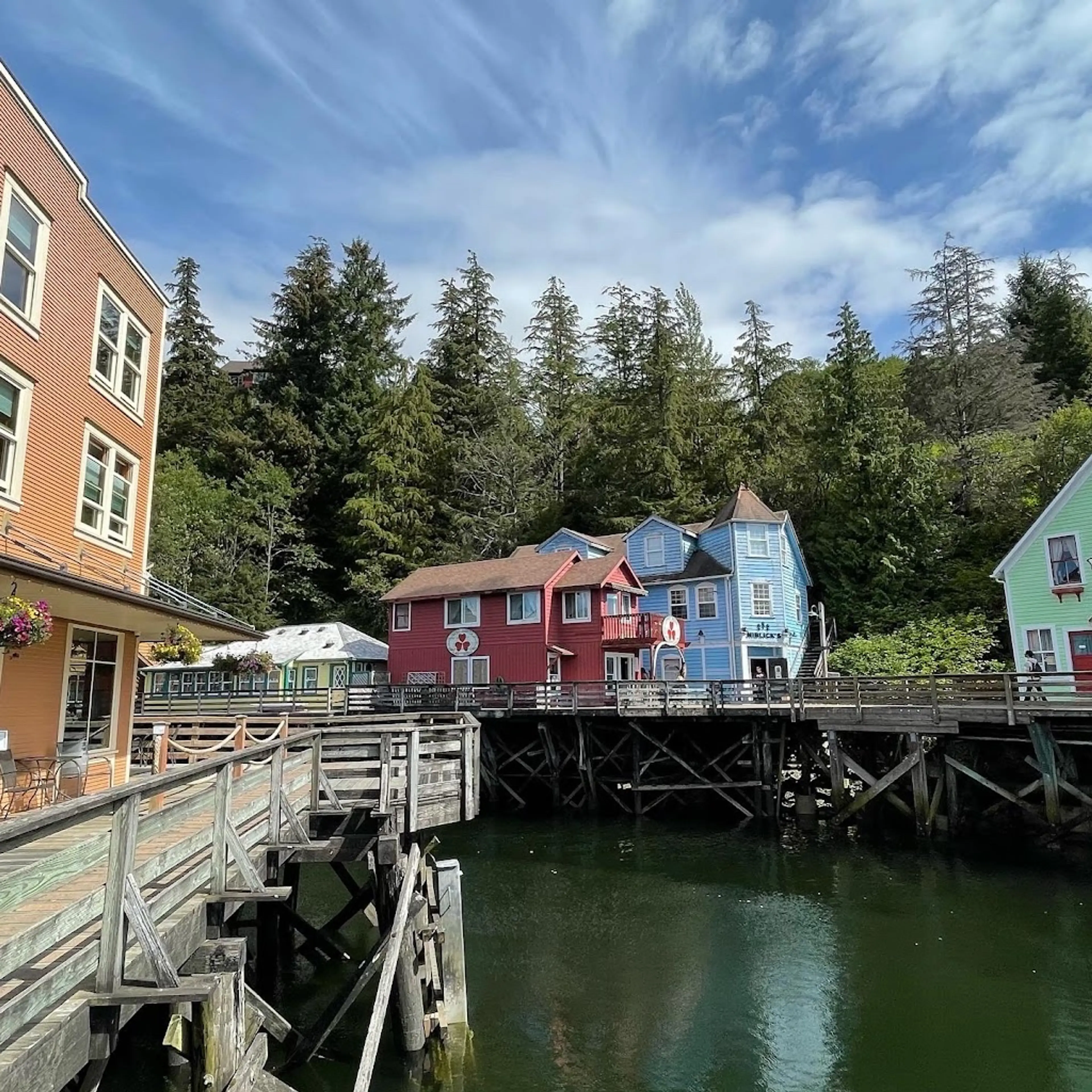
Ketchikan
Known for its many Native American totem poles
